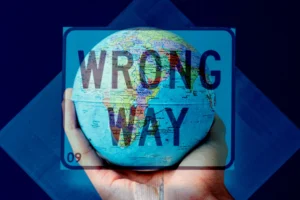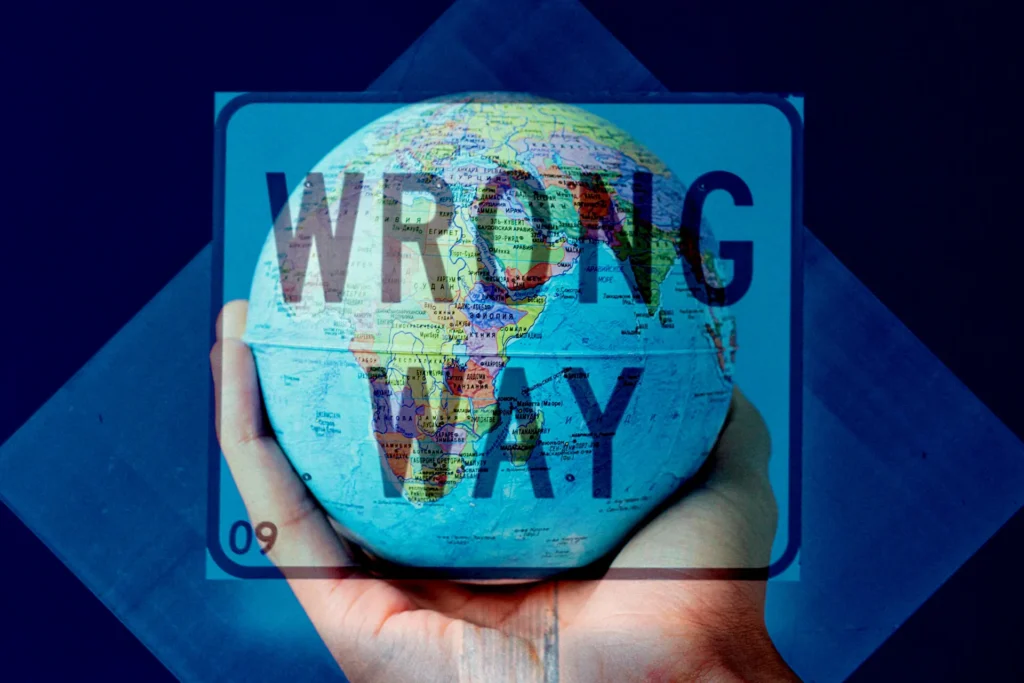Legal disputes come in many forms, but at their core, most proceedings fall into one of two categories: civil or criminal. While these two branches of law may intersect on occasion, they are distinct in their purpose, procedure, and international application. Understanding how civil and criminal procedures operate—especially in cross-border matters—is critical not only for lawyers, judges, and government officials but also for private individuals and corporate legal officers who navigate international disputes.
In this comprehensive guide, we explore civil procedure and criminal procedure, their similarities, their core differences, and the international treaties that support each system. We also discuss where the services of a professional process server—like Stellar Konsulting—play an indispensable role.
I. Civil Procedure: Resolving Private Disputes
What is Civil Procedure?
Civil procedure governs the rules and processes that courts follow to resolve non-criminal disputes between individuals, organizations, or government entities acting in a private capacity. These cases are typically initiated by a plaintiff who claims harm or seeks a remedy from a defendant.
Common civil disputes include:
-
Breach of contract
-
Personal injury claims
-
Divorce and custody battles
-
Property disputes
-
Business litigation
The goal is not punishment, but compensation, enforcement of rights, or specific performance.
Key Stages in Civil Procedure
-
Filing a Complaint
-
The plaintiff files a written complaint with the appropriate court.
-
-
Service of Process
-
Legal documents are formally served on the defendant.
-
-
Response
-
The defendant may file an answer, counterclaim, or motion to dismiss.
-
-
Discovery
-
Both sides exchange relevant information, documents, and testimony.
-
-
Pre-Trial Motions
-
Legal issues are resolved before trial.
-
-
Trial
-
Both parties present evidence and arguments.
-
-
Judgment
-
The court renders a verdict.
-
-
Appeal
-
Either party may challenge the decision.
-
-
Enforcement
-
Winning parties may enforce the judgment through legal means.
-
Scope and Limitations of Civil Procedure
Scope: Civil procedure is wide-ranging and applies to both domestic and international disputes involving private rights.
Limitations: It does not address criminal conduct, administrative matters, or public law. Also, civil procedure varies between jurisdictions, which can complicate cross-border litigation.
II. The Role of the Hague Conventions in Civil Procedure
1. Hague Service Convention (1965)
The Hague Service Convention facilitates the cross-border service of judicial and extrajudicial documents in civil and commercial matters among member states. It eliminates the need for diplomatic or consular channels, offering a streamlined method through designated Central Authorities.
Key Features:
Applies only to civil and commercial matters, not criminal.
Ensures proof of service that is legally recognized in the country of origin.
Provides several modes of service, including direct postal channels (if accepted by the receiving country) or formal transmission through authorities.
2. Hague Evidence Convention (1970)
The Hague Evidence Convention enables parties in civil or commercial proceedings to obtain evidence abroad through formal requests to foreign judicial authorities.
Key Features:
Allows for the taking of witness testimony or document production from abroad.
Parties may submit a Letter of Request to the foreign authority.
Ensures judicial oversight of evidence-gathering, promoting due process and admissibility.
Limitations of Hague Conventions
Only applicable between contracting states.
Each country may place reservations or limitations on the methods allowed (e.g., rejecting direct service).
Does not cover criminal investigations or enforcement.
III. Criminal Procedure: Protecting Society and Enforcing Laws
What is Criminal Procedure?
Criminal procedure refers to the rules governing the prosecution of crimes—from investigation through sentencing. Unlike civil procedure, criminal cases are brought by the state or a government authority against individuals or entities accused of committing crimes.
Common criminal offenses include:
Theft, fraud, and embezzlement
Assault and homicide
Drug trafficking
Corruption
Cybercrime
Key Stages in Criminal Procedure
-
Investigation
-
Police or authorities gather evidence of suspected criminal activity.
-
-
Arrest
-
Suspects may be taken into custody based on probable cause.
-
-
Charging
-
Prosecutors formally file charges.
-
-
Initial Appearance and Bail
-
The defendant is informed of their rights and charges.
-
-
Pre-trial Motions
-
Legal issues (e.g., suppression of evidence) are resolved before trial.
-
-
Trial
-
The prosecution must prove guilt beyond a reasonable doubt.
-
-
Verdict and Sentencing
-
Upon conviction, the court imposes a sentence.
-
-
Appeal
-
The defendant may challenge errors or violations of rights.
-
Scope and Limitations of Criminal Procedure
Scope: Criminal procedure applies to offenses against the state and public order. It ensures protection of the accused’s rights (e.g., presumption of innocence, right to counsel).
Limitations: Jurisdiction and sovereignty issues often limit enforcement. International cooperation is required when crimes cross borders.
IV. International Treaties Supporting Criminal Procedure
Unlike civil procedure, criminal procedure lacks a single global treaty. Instead, cooperation occurs through a network of Mutual Legal Assistance Treaties (MLATs) and multilateral conventions.
1. Mutual Legal Assistance Treaties (MLATs)
MLATs are formal agreements between countries to assist each other in criminal investigations and prosecutions.
Key Functions:
Serve criminal subpoenas or court documents
Obtain witness testimony
Share financial and banking records
Conduct searches and seizures abroad
2. Key Criminal Law Conventions
a. UN Convention Against Transnational Organized Crime (UNTOC)
Also known as the Palermo Convention
Supports international cooperation on organized crime, trafficking, and corruption
b. UN Convention Against Corruption (UNCAC)
- Encourages countries to collaborate on investigations, asset recovery, and prosecution of corruption-related crimes
c. European Convention on Mutual Assistance in Criminal Matters
- Facilitates evidence sharing and extradition across European states
d. Inter-American Convention on Mutual Assistance in Criminal Matters
- Promotes cooperation among member states of the Organization of American States (OAS)
Limitations of International Criminal Cooperation
Requires diplomatic and legal coordination
Some countries may refuse to cooperate due to political, legal, or human rights concerns
Evidence gathered abroad must meet domestic admissibility standards
V. Similarities Between Civil and Criminal Procedure
While fundamentally different in purpose, civil and criminal procedures share some similarities:
| Feature | Civil Procedure | Criminal Procedure |
|---|---|---|
| Structured Process | Yes | Yes |
| Use of Courts | Yes | Yes |
| Right to Appeal | Often available | Often available |
| Due Process | Required | Required |
| Use of Legal Counsel | Common but optional | Constitutionally protected |
| Service of Documents | Required | Required (though methods differ) |
Both systems also require the formal service of legal documents, which is where a reliable process server becomes extremely valuable.
VI. The Role of Process Servers in Legal Procedures
Whether you’re pursuing a civil lawsuit or facing a criminal investigation involving international dimensions, timely and lawful service of documents is crucial. Errors in service can result in:
Dismissal of a case
Delay in proceedings
Non-enforceable judgments
This is where a professional process server company like Stellar Konsulting plays a vital role.
When Process Servers Are Essential:
Serving international summons and complaints under the Hague Service Convention
Handling Letters Rogatory for evidence abroad
Delivering criminal subpoenas under an MLAT
Locating and serving hard-to-find individuals or businesses
Ensuring compliance with foreign service requirements to avoid rejection by courts
VII. Choosing the Right Approach
Navigating legal disputes—whether civil or criminal—requires a thorough understanding of procedure, jurisdiction, and international law. Both systems rely heavily on due process, proper notice, and timely action. However, the scope, stakes, and international treaties vary dramatically.
Whether you’re a:
Litigation lawyer handling international business disputes,
Corporate legal officer managing cross-border compliance,
Or a private individual involved in a foreign legal matter,
—you must understand which legal framework applies and act accordingly.
Engage Stellar Konsulting for Professional Process Service
Whether you’re dealing with a complex civil case or a criminal matter requiring international service of documents, Stellar Konsulting offers the experience, precision, and global reach to ensure your documents are delivered lawfully and efficiently.
✅ Experts in Hague Service Convention procedures
✅ Skilled in managing MLAT and Letters Rogatory service
✅ Fast, discreet, and compliant service in over 180 countries
📞 Call us today at +1 (213) 786 1161
📧 Email: operations@stellarkonsulting.com
Let Stellar Konsulting be your trusted partner in international service of process.
This article is for informational purposes only and does not constitute legal advice. For legal counsel, please consult a licensed attorney.



















